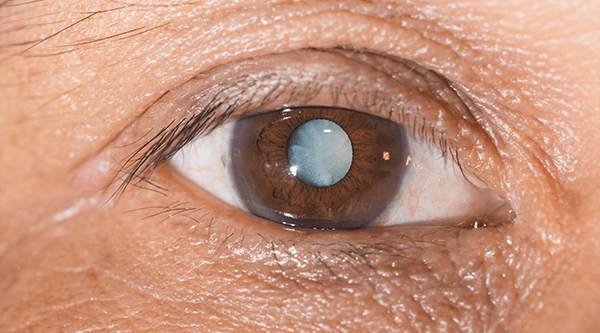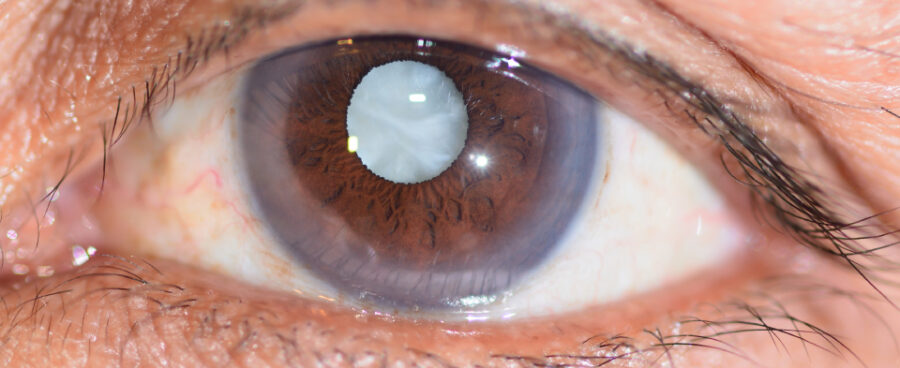A cataract is a clouding of the natural lens in the eye, which lies behind the iris and the pupil. This clouding can significantly impair vision if left untreated, and the condition can worsen as cataracts grow denser over time. Cataracts most commonly affect older individuals but can also be caused in young indivisuals occasionaly. Seeking early treatment from can help prevent serious vision loss.


The first sign is often mild blurriness or hazy vision, as though you’re looking through a fogged-up window. If you notice this, consult Dr. Shanthi Niketh at Shanthi Nethralaya Eye Hospital for a thorough check-up.

Bright lights may seem unusually harsh, especially while driving at night. Headlights can appear overly bright, making night driving more difficult.

Seeing halos or rings of light around light sources can be an early symptom of cataract development. These halos are more pronounced at night.

Colors may seem duller or less vibrant. You might not notice this immediately, but over time, the world may appear less bright.

If you find yourself needing frequent updates to your eyeglass or contact lens prescription, this could indicate the early onset of cataracts.

With time, vision becomes significantly impaired, making it hard to read, drive, or recognize faces. This loss of vision can interfere with everyday tasks.

You may experience double vision in one eye, even if the other eye is closed. This symptom may develop as the cataract becomes denser.

Night vision worsens, and driving or navigating in low light becomes more challenging. Streetlights, headlights, and other light sources can create intense glare, reducing visibility.

Bright lights, whether from the sun or artificial sources, may seem glaring and harsh. You might find it hard to tolerate even regular indoor lighting.

In advanced stages, cataracts may become visibly noticeable as a cloudy area in the eye lens, leading to almost complete obstruction of vision. At this stage, cataract surgery might be necessary, at Shanthi Nethralaya Eye Hospital we can provide expert guidance on your treatment options.

If you notice any changes in your vision, even if they seem minor, it’s important to visit an eye specialist . Blurry vision, halos, and difficulty seeing at night are early signs that shouldn’t be ignored.

If your vision problems interfere with daily tasks, such as reading, working, or driving, it’s time to consult an ophthalmologist for a thorough eye examination.

If your eyeglass prescription changes frequently, it could be due to the growth of the cataract.

When cataracts interfere with your ability to lead an independent life, such as walking alone at night or driving, seeking medical attention becomes essential. Dr. Shanthi Niketh and his team can provide the best treatment to restore your independence.
Surgery can effectively treat cataracts, but early detection is key to preventing vision loss. If you are experiencing any of the early or advanced symptoms mentioned above, don’t wait for your vision to worsen. Visit Shanthi Nethralaya Eye Hospital for a comprehensive eye examination and the best treatment options to restore your clear vision.At Shanthi Nethralaya, Dr. Shanthi Niketh and his team are committed to your eye health and well-being!
If you’re experiencing any of these symptoms, book an appointment today with Dr. Shanthi Niketh at Shanthi Nethralaya Eye Hospital. Don’t let cataracts cloud your vision—call us now!

WhatsApp us